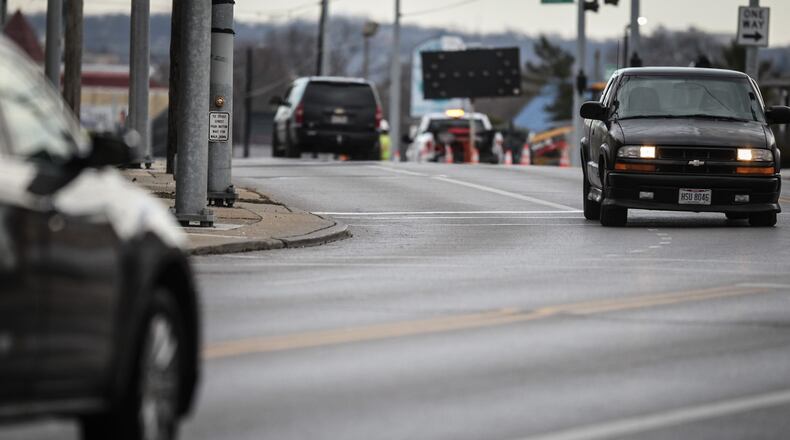The road would have one lane in each direction and a center turn lane. Currently, the road has two lanes heading in each direction, north and south.
The city also wants to soften a sharp curve at the intersection of Santa Clara Avenue, which some residents call “dead man’s curve.”
“This project should have a significant impact to the safety along North Main Street and will reduce the vehicular speed,” said Joe Weinel, the city’s chief engineer. “The project should also improve the walkability of the corridor and will hopefully be able to promote development.”
Dayton city commissioners at their last weekly meeting approved an ordinance accepting a $4.74 million grant from the Ohio Department of Transportation (ODOT).
The city submitted a joint application for the safety funding last fall, in cooperation with ODOT District 7.
City staff for years have been meeting with residents who live along the North Main corridor to gather feedback about potential changes to the roadway to address safety concerns.
Some residents have long complained about speeding, traffic crashes, pedestrian strikes, crime and disinvestment in the North Main Street area.
Between 2017 and 2019, there were more than 750 crashes reported along a 3.5-mile stretch of Main Street between Great Miami Boulevard and Shoup Mill Road. About 34 crashes involved pedestrians.
The city plans to use the grant funds to shrink the roadway, add curb extensions to support new on-street parking spaces and install new lighting and pedestrian signals, like push-button flashing beacons.
Removing the passing lanes should reduce traffic speeds, and a middle turn lane hopefully will help reduce collisions, city staff said.
North Main Street handles more than 18,000 vehicles every day.
City staff will handle the preliminary redesign work and complete an environmental review through 2022, Weinel said.
In 2023, the city will hire consultants to prepare right-of-way plans and acquire needed property, he said. Construction is expected to begin in 2024.
Dayton expected to receive some funds from the state, but the grants are very competitive and the city was pleased to receive the full amount it requested, Weinel said.
The project is significant for residents who live along the corridor and motorists who pass through it, said Ben Wiltheiss, planning engineer with ODOT District 7.
Planned improvements include pedestrian safety upgrades to the sidewalks and lighting, and there will be high visibility crossings and median refuge islands, he said.
“This will help to reduce the number of pedestrians being struck and more importantly reduce the fatalities occurring with these types of crashes,” he said.
The funding currently is approved for 2024 and construction should begin in the early part of the summer 2024, Wiltheiss said.
The corridor has not seen a large overhaul in years, Wiltheiss said, though a section maintained by ODOT District 7 between Wampler Ave. and Turner Road was resurfaced in 2016.
The intersections of Helena, Fairview and Hillcrest were improved between 2001 and 2010, but otherwise there has not been a major makeover of the roadway recently, the city said.
About the Author




